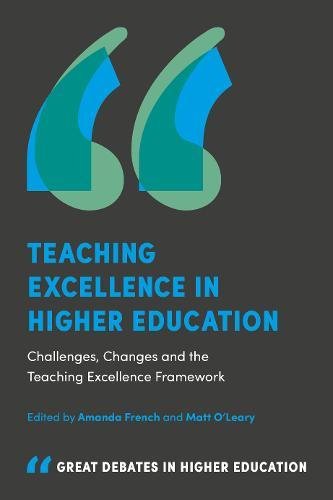'What gets measured gets improved’ – how we might help institutions boost their TEF performance

‘What gets measured gets improved' has become something of a mantra for our Product team here at Emerald; and that refrain rang in our ears clear as a bell when the TEF (Teaching Excellence Framework) results came out recently for the UK.
A great deal of the media and industry response to the TEF appeared to focus on a surprising and not inconsiderable discrepancy in teaching performance between some universities traditionally viewed as ‘prestigious’ and many Post-1992 universities.
While the red brick and Russell Group universities in particular might well be expected to outperform the Post-1992 universities when it comes to the REF (Research Excellence Framework - the system for assessing the quality of research in UK higher education institutions), it appears that many of the latter group are - according to the TEF - generally punching above their weight when it comes to the quality of higher education teaching.
On the flip side, the TEF results suggest that some of the more prestigious UK universities perhaps need to address a few things to help improve teaching experience and other desired outcomes for students. After all, UK students are now paying for university tuition fees out of their own (or their parents’!) pockets and therefore have customer-like expectations, such as hands-on teaching, tutoring and being helped to become as employable as possible after their studies.
While we recognize that the TEF is a new and emerging system - and, as such, is a work in progress - you can’t underestimate how incredibly valuable the quality of teaching and its impact is on the social sciences and humanities subjects in higher education institutions. Perhaps - though some might argue! - even more so than in STEM subjects which are naturally more research-led than they are by hands-on teaching approaches.
While not advocating an Ofsted-type approach to over-scrutinizing teaching in universities, what we do feel is that there are potentially some really exciting opportunities to help higher education institutions improve the teaching experience.
That might be done through data-led approaches and services or products that measure and help those institutions to analyse and better understand their respective strengths and weaknesses; whether that be in terms of teaching or giving students what they need when it comes to equipping them for the world beyond academia.
For instance, what have been winners of Gold awards been doing to help them reach such heights? And where might those given Bronze improve? These things can and should be measured by universities to help them improve.
From a university funding perspective - and we’re sure this will be very clear in the minds of institution decision-makers - it’s likely that TEF performance could have a direct impact on how much universities can charge for tuition fees in future iterations. Again, people are paying for their tuition fees, so quite rightly expect a great teaching service and experience, and to gain skills that previous generations of students might not have expected to acquire at uni.
In the conclusion to Teaching Excellence in Higher Education - the first book in the Great Debates in Higher Education series published by Emerald (short, accessible books addressing key challenges to and issues in Higher Education on a national and international level) - co-Editors Amanda French and Matt O’Leary write:
‘Whatever one’s views about the TEF and whether it represents a forward or retrograde step for HE in the UK, it cannot be denied that it has generated a lot of discussion and debate about the practice of teaching in academia, its relationship with research and indeed its comparative status.
‘That such discussions should be happening amongst academics within and across institutions is a step forward in itself. For too long learning and teaching have occupied a peripheral position in the sector strategically and operationally.
‘TEF or no TEF, it’s time that learning and teaching became a bigger priority in higher education.’
With this in mind, we’d love to work with institutions to help develop products that could measure and help them improve their performance in the TEF and in other systems or metrics.






